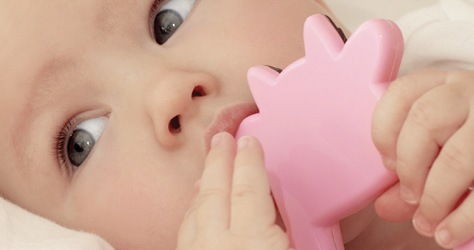So your toddler has built a skyscraper out of bricks....but then disaster strikes. The whole tower topples over and crashes to the ground (which could either really tickle them or prompt frustrated tears.
It could go either way). Then they start building again, this time making the base wider and more stable.
At a glance
- Spatial Skills
- Motor Skills
- Cognitive Powers

Simple child’s play, right? Well, actually no. That apparently simple building game demonstrates a huge number of really quite complex skills your little one will gradually be mastering over the next year or two.
When your toddler was building the tower, they were developing their spatial skills (where to put the bricks, how tall would it go?) as well as their fine motor skills (manipulating each brick with their newly developed pincer grasp) and their cognitive powers. But when it fell over, they were using a whole new and different set of abilities – their reasoning and problem-solving skills: how can I make it better this time so it won’t fall over? Can I get over my frustration and disappointment and try again? If they’re upset at the collapse, react with a reassuring hug and suggest they try again.
You can help with some advice if necessary, such as ‘maybe try it with more bricks at the bottom’. This step-by-step thinking is the key to problem-solving, and it improves with practice and with age. Watch as they analyse their work, see what went wrong and work out a plan for trying again. It’s a great lesson in resilience - that ability to soldier on and keep trying even if something hasn’t gone well. Research shows that children who keep trying and aren’t afraid of new challenges will do better in school, and in adult life.
It’s never too early to learn – which is why as parents we shouldn’t always leap in at the first sign of frustration and magically ‘fix’ it for them. Stand back and wait to see if they can work it out for themselves first. Then offer gentle suggestions for improvement and see if they can put those into practice. However, if they are still really frustrated and cross, it can be counter-productive to continue: distract them by suggesting another toy.
They may well come back to their tower later. The best toys to encourage problem-solving are ones that offer the chance to practice step-by-step thinking (like puzzles and jigsaws) plus those with lots of play possibilities and the chance to use their imagination (like bricks and blocks and train sets). A good place to start is the award winning Big Building Bag from Mega Bloks which contains 60 large bricks just waiting to be turned into towers, castles, animals – in fact anything your toddler could wish. And if their tower is going to use all 60 bricks, they’ll soon learn it will have to have a pretty wide and stable base...